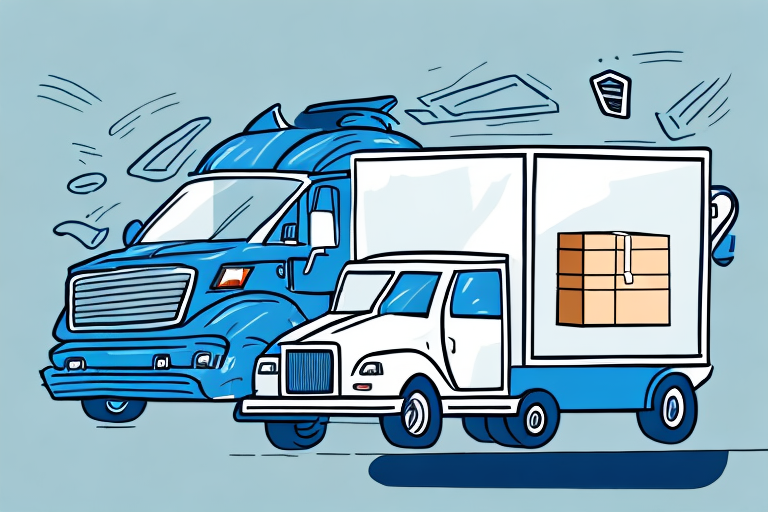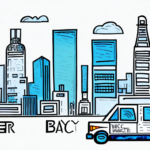Introduction to Courier Services
Courier services are specialized delivery solutions that handle the transportation of packages, documents, and other items from one location to another with speed and reliability. Originating from ancient times, where messengers delivered critical messages for governments and leaders, the role of couriers has significantly evolved to become an integral part of modern global commerce.
The Evolution of Courier Services: From Ancient Messengers to Modern Logistics
The concept of courier services dates back to ancient civilizations, where swift and reliable messengers were essential for communication across vast empires. For example, the Yam messenger system in the Persian Empire enabled messages to travel up to 250 miles in a day.
During the Middle Ages, couriers known as "post riders" transported goods and official documents across regions, often on horseback. The establishment of national postal systems in the 19th century, such as the Royal Mail in the UK and the U.S. Postal Service, standardized and expanded courier services.
In recent decades, the rise of e-commerce has fueled a surge in demand for courier services. According to a Statista report, global e-commerce sales reached over $5 trillion in 2023, necessitating efficient and reliable delivery options to meet consumer expectations.
Benefits of Using Courier Services for Your Business
Businesses of all sizes can leverage courier services to enhance their operations and customer satisfaction. Key benefits include:
- Speed: Couriers offer same-day and overnight delivery options, ensuring timely arrival of products and documents.
- Reliability: Professional couriers maintain high standards for punctuality and package handling, building trust with customers.
- Cost Savings: Outsourcing deliveries can reduce expenses related to vehicle maintenance, fuel, and employee wages.
- Flexibility: A variety of delivery options allow businesses to tailor services to specific needs, such as scheduled deliveries or handling large volumes during peak seasons.
- Real-Time Tracking: Many courier services provide tracking tools that offer visibility into the delivery process, enhancing transparency and customer service.
Types of Courier Services and How to Choose the Right One
Courier services come in various forms, each catering to different business requirements:
Same-Day Delivery
Ideal for urgent shipments, same-day delivery ensures packages reach their destination within hours. This service is particularly beneficial for industries like healthcare and legal services.
Overnight Shipping
Overnight shipping guarantees next-business-day delivery, suitable for non-urgent but time-sensitive items.
International Courier Services
These services facilitate cross-border shipments, accommodating customs clearance and international regulations. They are essential for businesses expanding into global markets.
Specialized Courier Services
Designed for fragile, high-value, or perishable items, specialized couriers employ additional safeguards to ensure the safe and timely delivery of sensitive goods.
Factors to Consider When Choosing a Courier Service
- Delivery Speed: Assess the urgency of your shipments to determine the appropriate service level.
- Cost: Compare pricing structures to find a service that aligns with your budget while meeting delivery needs.
- Reliability: Research the courier’s track record for on-time deliveries and package safety.
- Coverage Area: Ensure the courier can service the regions where your business operates.
- Additional Services: Consider value-added services like tracking, insurance, and customer support.
Cost Considerations and Enhancing Efficiency
Understanding the Cost Factors
The cost of courier services varies based on several factors:
- Distance: Longer delivery distances typically incur higher fees.
- Package Size and Weight: Heavier and larger packages cost more to transport.
- Delivery Speed: Express services like same-day delivery are more expensive than standard options.
- Additional Services: Features such as insurance, signature confirmation, and real-time tracking may add to the total cost.
Maximizing Value Over Cost
While cost is a crucial factor, businesses should focus on the overall value offered by courier services. A slightly higher cost may be justified by enhanced reliability, faster delivery times, and superior customer service. According to a McKinsey report, investing in reliable logistics can lead to increased customer satisfaction and repeat business.
The Role of Technology and Sustainability in Modern Courier Services
Advanced Tracking and Communication Tools
Technology has revolutionized courier services through real-time tracking, automated notifications, and digital communication platforms. These advancements provide businesses and customers with greater visibility and control over the delivery process.
Innovations in Delivery Methods
Emerging technologies such as drones and autonomous vehicles are set to transform the courier industry. Companies like Amazon and FedEx are investing in these technologies to enhance delivery speed and efficiency.
Sustainability Initiatives
Environmental sustainability is a growing priority for courier services. Initiatives include the use of electric and hybrid vehicles, optimizing delivery routes to reduce carbon emissions, and employing eco-friendly packaging materials. According to a GreenBiz article, these measures not only benefit the environment but also appeal to eco-conscious consumers.
Best Practices and Future Trends in Courier Services
Best Practices for Using Courier Services
- Provide Accurate Information: Ensure pickup and delivery addresses are correct to avoid delays and additional costs.
- Proper Packaging: Use appropriate materials and follow courier guidelines to protect items during transit.
- Utilize Tracking Tools: Monitor shipments in real-time to stay informed and address any issues promptly.
- Plan Ahead: Schedule pickups and deliveries in advance to accommodate peak periods and ensure timely service.
Common Mistakes to Avoid
- Incomplete Information: Missing or incorrect details can lead to lost or misrouted packages.
- Poor Packaging: Inadequate protection increases the risk of damage or loss.
- Ignoring Service Terms: Failing to understand courier policies may result in unexpected fees or service disruptions.
Future Trends in Courier Services
The courier industry is poised for significant transformation driven by technological advancements and changing consumer expectations:
- Autonomous Delivery Vehicles: Self-driving vans and drones are expected to reduce delivery times and operational costs.
- Artificial Intelligence: AI can optimize routing, predict delivery times, and enhance customer service through chatbots.
- On-Demand Delivery Models: Increased demand for flexible and immediate delivery options is leading to the rise of gig-based courier services.
- Enhanced Sustainability: Continued focus on reducing environmental impact through innovative practices and green technologies.
The Bottom Line
Whether you are a small business owner or a consumer looking to ship a package, courier services offer a range of benefits over standard shipping methods. By understanding the different types of courier services available, choosing the right service provider, and following best practices for packaging and communication, you can ensure that your packages are delivered safely, reliably, and on time. Embracing technological advancements and sustainable practices will further enhance the efficiency and environmental responsibility of your delivery operations.



















